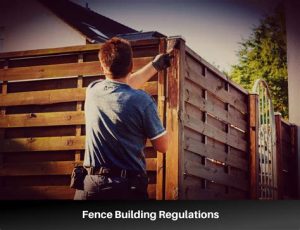Learn how to navigate the denial process, understand local regulations, gather documents, prepare an appeal letter, and effectively present your case to the board.Navigating the world of building permits can be a daunting task, especially when you face a denial for something as fundamental as a fence. A denied fence permit application can feel discouraging, but it’s important to remember that this setback is not the end of the road. In this blog post, we’ll guide you through the process of appealing a denied fence permit, starting with understanding the reasons behind the denial and reviewing local regulations. From gathering the necessary documentation to crafting a compelling appeal letter and presenting your case to the board, we’ll provide you with the tools and insights you need to successfully advocate for your fencing project. Join us as we turn your frustration into a powerful appeal strategy!
Understanding the Denial
When you receive a denial for your fence permit application, the first step is to fully understand the reasons behind the decision. Each denial letter typically outlines the specific regulations or criteria that were not met in your application. This insight is crucial as it provides the foundation for your appeal.
Common reasons for denial may include non-compliance with local zoning laws, insufficient documentation, or proposed designs that do not align with neighborhood aesthetics. It’s essential to read the denial letter carefully and note any cited regulations. This will allow you to address the specific concerns raised by the reviewing board.
Understanding the denial not only helps in establishing your appeal strategy but also enables you to gather any additional information or documentation required to support your case. By knowing what went wrong, you can formulate a plan to correct those issues, increasing the likelihood of a successful appeal.
Reviewing the Local Regulations
When appealing a denied fence permit application, the first step is to review the local regulations that govern fence construction in your area. Every municipality has its own set of zoning laws and building codes which dictate what can and cannot be done regarding fences. Understanding these regulations is crucial as it can pinpoint the reasons for your initial denial.
Start by consulting the local zoning ordinance. This document often specifies the allowable height, materials, and placement of fences depending on your property type and its location. For example, residential areas may have different requirements compared to commercial zones. Additionally, regulations regarding property lines and setbacks are often outlined, which is essential for ensuring that your fence does not infringe on neighboring properties.
Sometimes you might find relevant information on the local government’s website or by contacting the planning or zoning department directly. They can provide you with specific guidelines and any recent updates to the regulations that may affect your appeal.
Gathering Necessary Documentation
When appealing a denied fence permit application, one of the most critical steps is gathering necessary documentation. This documentation serves as the foundation of your appeal, providing evidence to support your case and demonstrating compliance with local regulations. Here’s a closer look at what you should include.
Start by collecting the original permit application and any correspondence you’ve had with the local authorities regarding your fence. This includes emails, letters, and any notes from phone conversations. These documents will help illustrate the context of your application and highlight any misunderstandings.
Next, compile evidence to support your appeal. This might involve gathering property surveys, photos of your property and surrounding areas, and any relevant zoning regulations that pertain to your case. If applicable, include statements from neighbors or other stakeholders who support your application.
Finally, review the specific requirements outlined by the zoning board or relevant regulatory body. Ensure you have enclosed all necessary forms and documents, as incomplete submissions can lead to further delays or rejection of your appeal.
Preparing an Appeal Letter
When you receive a denied fence permit application, the next crucial step is to draft an effective appeal letter. This letter will serve as your official request for reconsideration, and it’s essential that it is clear, concise, and persuasive. Below are some tips to help you prepare a compelling appeal letter.
First, be sure to address the letter correctly. Use the proper title and name of the individual or board that denied your permit. In the opening paragraph, briefly state the purpose of your letter and reference your original application by including the date it was submitted and any application numbers.
Next, provide clear reasoning for your appeal. This might include addressing the specific reasons provided for the denial of your fence permit. You should present any additional information or documentation that supports your case, highlighting how your proposal aligns with local regulations.
- List any regulations that support your case.
- Include any enhancements or adjustments made to comply with feedback.
- Offer visual aids, such as site plans or photographs, to reinforce your arguments.
Finally, close the letter by expressing your appreciation for the review of your appeal. Politely request a meeting or a hearing to further discuss your application if needed. Ensure your contact information is provided for follow-up communication.
Presenting Your Case to the Board
Once you have gathered all necessary documentation and prepared your appeal letter, the next critical step is presenting your case to the board. This moment is essential, as it provides you the opportunity to clarify your position and address any concerns the board may have regarding your denied fence permit application.
When attending the board meeting, it is vital to remain professional and composed. Begin by clearly stating your intention, the reason for your appeal, and importantly, the benefits of your proposed fence. Highlight how it aligns with local regulations and enhances the aesthetics or security of your property.
- An overview of your original application
- Clarifications on specific issues raised by the board during the initial review
- Evidence or examples of similar fences in your locality
- Photos or diagrams showing how the fence complements your property
Be sure to allow time for questions from the board members. Engaging with their queries can show that you are invested and knowledgeable about your project, which can further strengthen your case. In the end, an articulate and confident presentation could significantly improve your chances of overturning the initial denial.
Frequently Asked Questions
What are the common reasons a fence permit application might be denied?
Common reasons for denial include non-compliance with local codes, incorrect application forms, insufficient property lines, or failure to meet zoning regulations.
What is the first step to take after receiving a denied fence permit application?
The first step is to carefully review the denial letter to understand the reasons for the rejection and gather all necessary documents.
How can I strengthen my appeal for a denied fence permit?
You can strengthen your appeal by providing additional documentation, correcting any cited issues, and possibly including supporting statements from neighbors or professionals.
Is there a time limit to appeal a denied fence permit application?
Yes, there is often a time limit to appeal a denied application, typically ranging from 30 to 60 days, depending on your local regulations.
Should I consider talking to a lawyer for my fence permit appeal?
Consulting a lawyer can be beneficial, especially if your appeal involves complex legal issues or if you are facing opposition.
What documentation should I include with my appeal?
Include any relevant communications, photographs, maps of your property, and any new plans that address the reasons for denial.
How can I find out more about the appeal process in my area?
You can contact your local zoning board or building department for information, as they usually provide resources or guidelines on the appeal process.





